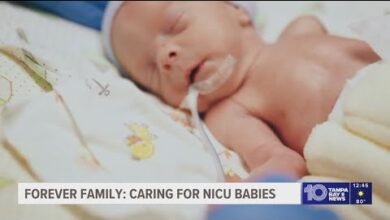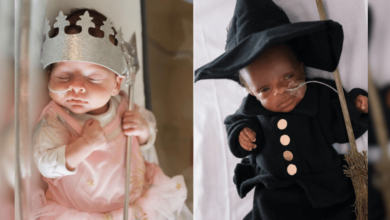Improvements at Letby trust but ‘more to do’

Neonatal staff at the Countess of Chester Hospital, where Lucy Letby previously worked, are committed to providing excellent care “under difficult circumstances”, a new report has found.
The Care Quality Commission (CQC) has this week published a report following inspections at the Countess of Chester Hospital NHS Foundation Trust between October and November last year.
“We are focused and will remain so until our services are consistently back to the standards our patients expect them to be”
Sue Pemberton
Despite concerns raised in the report about some of the hospital services, the regulator highlighted significant improvements that had been made to neonatal and maternity services.
The inspections came just a few months after former neonatal nurse Letby was jailed for murdering seven babies and attempting to murder six others at the hospital between 2015 and 2016.
Letby – who has maintained her innocence throughout – was given a whole-life sentence for the crimes and this month had an appeal to have the conviction overturned rejected.
The Countess of Chester Hospital has been in the spotlight since the trial, after it was revealed that senior managers had failed to listen to concerns raised by staff about the neonatal nurse.
The CQC said its unannounced inspection of the trust was prompted by concerns about the quality of care that was being provided to people.
During its visits, inspectors looked at urgent and emergency, children and young people (CYP), medical and maternity services at the Countess of Chester Hospital, as well as medical services at Ellesmere Port Hospital. They also assessed how well-led the trust was overall.
Following the inspections, the trust was rated as ‘requires improvement’ overall.
For CYP services at the Countess of Chester Hospital, which includes neonatal, the CQC changed its rating from ‘good’ to ‘requires improvement’.
The report warned that, while the service had provided mandatory training in key skills to all staff, not all staff had completed training.
In addition, it warned of poor maintenance of the premises, to the point where the regulator had to escalate some of the risks during the inspection due to patient safety concerns.
However, there was much to be celebrated about neonatal staff working at the Countess of Chester Hospital, in the wake of Letby’s conviction.
The CQC visited staff working in a neonatal unit and children’s ward and found “evidence of positive culture in all services”.
The regulator said that staff reported good teamwork and excellent morale and that they received high levels of support from managers and colleagues.
It also noted that staff displayed “a high level of resilience” to continue to meet the needs and care of children and young people “despite difficult circumstances”.
The report found that the neonatal unit at the hospital had “enough nursing and support staff to keep children and young people safe”.
In addition, neonatal staff were found to deal with specific risks, and had “removed or minimised risks and acted quickly upon risks of deterioration”.
Staff also recognised and reported near incidents, while managers “investigated incidents thoroughly for serious incidents”, said the CQC.
In addition, the CQC director of operations in the North, Ann Ford, noted that the regulator had found “improvements in maternity services” at the Countess of Chester Hospital.
She said: “Some processes had been improved to increase the safety for women, people using the service and their babies.
“This was encouraging, although more work was needed in this service.”
The CQC rated maternity services overall as ‘requires improvement’, from previously being rated ‘inadequate’.
The report found that the service had enough maternity staff with the right training and experience to keep women and birthing people safe from avoidable harm.
In addition, it found that nurses, doctors and other healthcare professionals worked together as a team to benefit patients, adding that they “supported each other to provide good care”.
Staff were found to treat patients with compassion and kindness, while they also respected their privacy and took account of their individual needs, the report said.
The CQC added that the service “treated concerns and complaints seriously, investigated them and shared lessons learned with all staff”.
However, it noted that maternity staff did not always complete and update risk assessments for each patient, while staff did not always take action to remove or minimise risk.
In addition, the CQC warned that staff did not always keep detailed records of patients’ care and treatment, meaning they did not always have access to the most up to date and accurate information.
Despite progress in some areas, Ms Ford highlighted concerns raised by the CQC about certain services at the trust, particularly around the “significant risk in urgent and emergency care”.
She said: “There weren’t enough staff to provide safe care and people were being cared for in inappropriate settings without mitigations in place to manage these risks.
“People receiving care in corridors had become normalised – this compromised people’s safety, privacy and dignity.”
The overall rating of urgent and emergency care at the trust declined from ‘requires improvement’ to ‘inadequate’.
Other key takeaways from the CQC report
- People could not always access services when they needed it or receive the right care promptly
- In multiple services the trust did not always have enough staff with the right skills, training and regular appraisal to provide safe and effective care
- Mandatory training rates were low in several areas and for specific courses including resuscitation and safeguarding training
- The trust did not manage infection prevention and control well. Clinical environments and equipment were not always clean and fit for purpose
- The trust did not consistently operate effective governance processes to ensure people received high-quality care which met their needs
- The trust did not always have effective oversight of the quality and safety of care provided to people. There were examples where failures in governance systems had resulted in unmitigated risks
Responding to the report, the chief executive of the trust, Jane Tomkinson said: “We are extremely proud that despite the obvious and significant challenges we face, caring has been rated as ‘good’ in every service the CQC inspected – this is undoubtedly down to the hard work and dedication of our staff and speaks volumes about the fantastic people that work at our trust.”
Meanwhile, Sue Pemberton, the nursing and quality and deputy chief executive officer of the trust, said: “We know we have much more to do and our teams are actively delivering improvements every week.
“We are focused and will remain so until our services are consistently back to the standards our patients expect them to be.
“Treating our patients with compassion and kindness is a core value for our staff and it is testament to them that this was recognised by the CQC throughout their inspection.”







